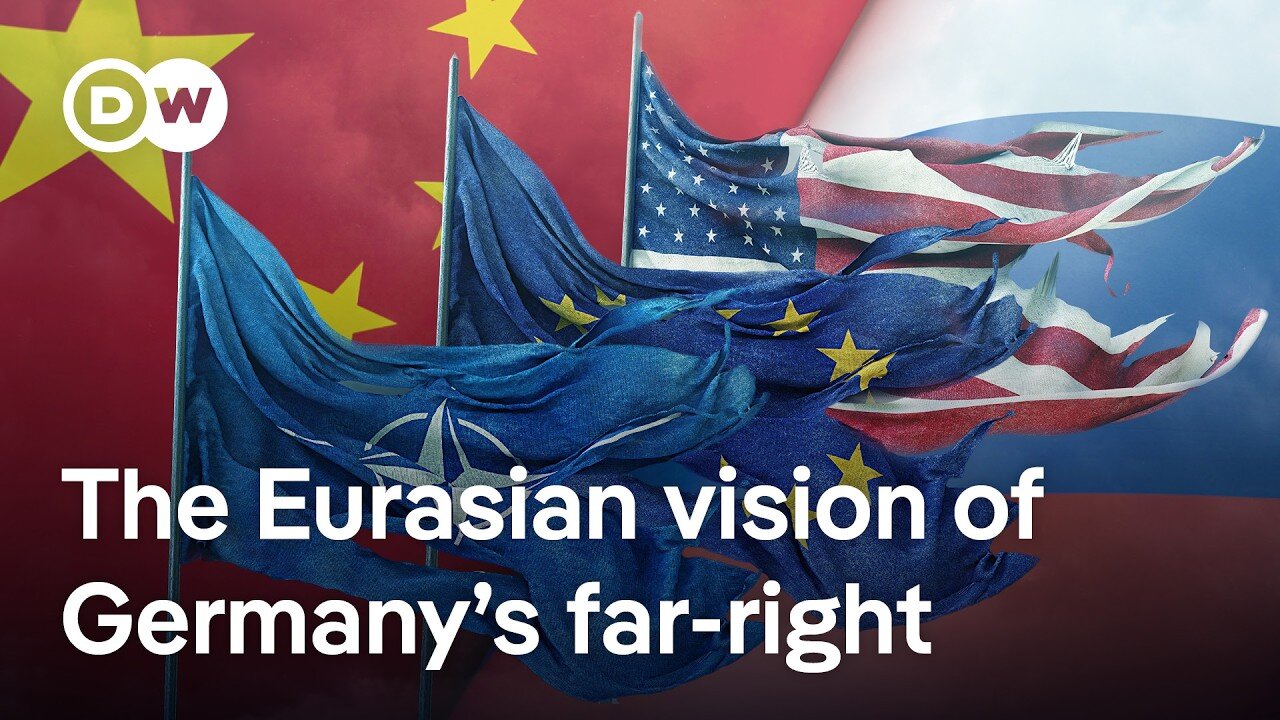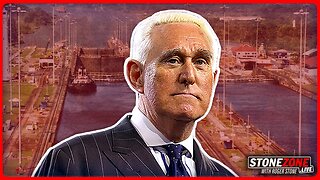Premium Only Content

Inside the far-right blueprint for Germany’s Eurasian future | DW Analysis
Germany’s far-right Alternative for Germany (AfD) is surging, with breakthroughs in regional and EU-wide elections. Party leader Alice Weidel says her goal is national power, eyeing the 2029 federal elections.
Despite its growing support, the AfD’s vision of foreign policy remains little known around the world. So in this new special report, DW takes a forensic microscope to the party’s blueprint for Germany’s future.
What this reveals is the party’s profound skepticism about the key Western alliances — NATO and the EU — and an outspoken openness to a Eurasian outlook, fostering deeper relations with Russia and China and the international institutions they lead, from the Belt and Road Initiative to the Shanghai Cooperation Organization and the Eurasian Economic Union: prime sources of prestige for Vladimir Putin in Moscow and Xi Jinping in Beijing.
In exclusive interviews with Alice Weidel, foreign policy spokesman Matthias Moosdorf and powerful ideologue Björn Höcke, DW’s Richard Walker and Rosalia Romaniec scrutinize the AfD’s views on Germany’s alliances and NATO Article 5 commitments to the Baltic states and Poland, its skepticism of the United States, possible future architectures for European defense, who should have nuclear weapons, future ties with Russia and China, and how Germany should act in a Taiwan conflict scenario.
Includes analysis from leading international experts on Russia, China, the US and Europe: Alexander Gabuev (Carnegie Russia Eurasia Center), Amanda Hsiao (International Crisis Group), Katarzyna Pisarska (Warsaw Security Forum), Peter Rough (Hudson Institute), and Judy Dempsey (Carnegie Europe).
Chapters
0:00 Introduction
6:00 Ramstein & US power
10:10 NATO
13:50 Baltics scenarios
20:05 Defense architecture
24:45 Putin’s shadow
27:20 Ukraine pivot
32:56 China & Taiwan
39:35 Eurasian institutions
43:05 EU and Dexit
45:05 Where Germany belongs
-
 38:41
38:41
MYLUNCHBREAK CHANNEL PAGE
1 day agoTimeline Begins in 1800? - Pt 1 & 2
18.8K15 -
 1:23:41
1:23:41
Game On!
20 hours ago $7.58 earnedNetflix NFL Christmas Games Preview and Predictions!
41.5K8 -
 2:05:07
2:05:07
Darkhorse Podcast
1 day agoWhy Trump Wants Greenland: The 257th Evolutionary Lens with Bret Weinstein and Heather Heying
277K439 -
 8:50:58
8:50:58
Right Side Broadcasting Network
1 day ago🎅 LIVE: Tracking Santa on Christmas Eve 2024 NORAD Santa Tracker 🎅
302K42 -
 2:48
2:48
Steven Crowder
1 day agoCROWDER CLASSICS: What’s This? | Nightmare Before Kwanzaa (Nightmare Before Christmas Parody)
292K12 -
 33:49
33:49
Quite Frankly
23 hours agoThe Christmas Eve Midnight Telethon
102K22 -
 2:12:46
2:12:46
Price of Reason
23 hours agoAmber Heard BACKS Blake Lively Lawsuit Against Justin Baldoni! Is Disney CEO Bob Iger in TROUBLE?
56.9K23 -
 1:01:17
1:01:17
The StoneZONE with Roger Stone
17 hours agoChristmas Edition: Why the Panama Canal is Part of the America First Agenda | The StoneZONE
127K47 -
 18:12:15
18:12:15
LFA TV
1 day agoLFA TV CHRISTMAS EVE REPLAY
142K18 -
 13:32
13:32
Scammer Payback
19 hours agoChanging the Scammer's Desktop Background to his Location
12.2K3